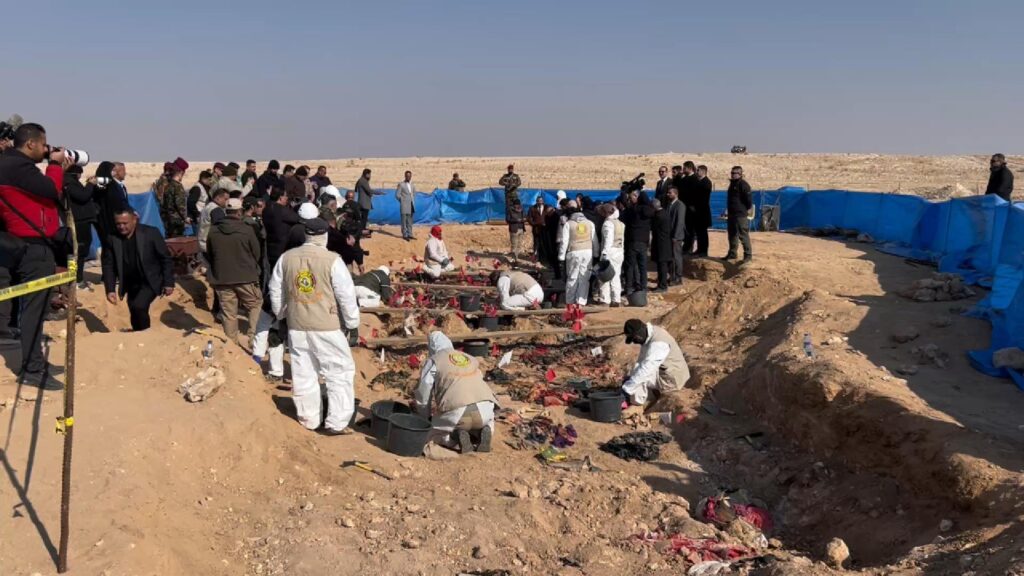Opinion | Jordanian Journals: Suez, Saddam, and strategic rivalries, how the U.S. continues to shape the Middle East

Though Jordanians hate American politics, many love the country’s culture.
February 22, 2022
If there’s one thing that I have noticed in Amman, it is that Jordanians love American culture and hate American politics.
McDonald’s is considered to be fine-dining and everyone wants to own a brand new pair of Nikes. Theaters are filled with American films and the kids prefer Ariana Grande to Arab music.
In contrast, if you mention the name George Bush, you will more likely than not get a shoe thrown at you.
These seemingly contradictory attitudes Jordanians hold towards the U.S. is reflective of the hegemonic role that the U.S. has played in the Middle East.
Although it would be ignorant to blame American foreign policy as the sole reason for the woes of the Middle East, Uncle Sam has helped sustain the dysfunction in the region. The consequences of its actions have led to the current geopolitical rivalry between Saudi Arabia and Iran.
From the 1950s onward, the American president has been the true king of Arabs as American policymakers have dictated the circumstances surrounding cultural, political, and economic issues plaguing the Middle East.
The Suez Crisis and the rise of a new top dog
In the late 1950s, the Egyptian President and Arab icon Gamal Abdul Nasser had a dream.
He was going to unite all the Arabs under the banner of a socialist state that would expel the dominant British and French colonial powers from the Middle East. In 1956, Nasser took the initial steps to achieve his goals when he nationalized the British and French owned Suez Canal.
The two decrepit empires did not take too kindly to an Arab telling them they couldn’t control global trade. Along with Israel, the British and French invaded Suez and attempted to depose Nasser.
After a week, the Europeans embarrassingly withdrew from the Suez in defeat. It had seemed that Nasser and his idea of a united Arab state would actualize.
However, despite what Nasser claimed at the time, Egypt’s army did not successfully repel the invaders. On the contrary, the ill-equipped and undisciplined Egyptians were routed by the French, British, and Israeli troops.
Rather, it was that the geriatrics in London and Paris did not realize that they were living in a new order where they were relegated to being pawns.
During the crisis, the Cold War between the U.S. and Soviets was quietly simmering in the background and both superpowers had an interest in bringing the Middle East under their sphere of influence. There was just not enough room for the old guard.
In short, the Suez crisis did not mark the coming of the revolution that Nasser promised. Instead, it marked the beginning of a transition as the U.S. was the new external power that would dominate the political, social, and cultural trends of the Middle East.
How American Hegemony works: The Iraq War and the birth of Saudi-Iranian rivalry
The first night that I met my host family, they took me with them to visit one of their friends, who was an elderly professor of history at the University of Jordan. As I timidly strolled into the house, the first words I heard out of the professors mouth were:
“I am a Stalinist and supporter of Saddam Hussein, but I love Colorado. It is such a beautiful state with nice mountains, America is my favorite country.”
Another, surreal interaction I had involving Saddam Hussein was when I got into a taxi whose driver had Saddam’s face on the back of the car. When I told the driver I was American, he proceeded to rail against the U.S. and how it had ruined the Middle East by deposing the Iraqi dictator. He then asked me to call the U.S. embassy and approve his visa application process.
“I love America! It is the best country in the world!” He retorted when I asked why on earth he wanted to go to a country he seemingly hated.
The Iraq War and the Bush Administration’s decision to topple Saddam’s reign had profound implications for the region. The brutality of Saddam’s Iraq has been ingrained into the minds of Americans and does not need to be reintroduced in these pages.
Despite the genocides against Iraq’s large Shia and Kurdish populations, the U.S.’s closest allies in the region, the Sunni gulf monarchies, saw the professed Sunni Saddam as a necessary evil as he served as a bulwark against Iran and its ambitions to obtain hegemony over the Middle East.
Furthermore, among the general Arab populations, Saddam is revered as a hero because he routinely launched Scud missiles at innocent Israelis partying in Tel Aviv and provided oil poor nations such as Jordan with cheap oil.
When the U.S. deposed Saddam, Iraq plunged into sectarian violence and Iran was able to gain considerable influence over the new Shia government through its network of proxy groups.
Iran’s aggressive policy of turning weak, destabilized states such as Iraq into puppet regimes spurred the Saudi monarchy into action as they realized they also wanted to engage in neo-colonialism.
In 2014, trouble began to brew on Saudi’s southern border as the country of Yemen was conquered by the Iranian-backed Houthi rebels. Fearing that what happened in Iraq was repeating, Saudi’s responded by launching a devastating air campaign that has caused the worst humanitarian crisis in the world. An air campaign bank-rolled by the U.S.
The idea of America in the Middle East
Despite all the hatred that Arabs seem to harbor against American foreign policy, they still yearn for their societies to be more like America as revealed by my interactions with ordinary Jordanians.
Every night, to close out the day, I have a cup of tea with my host family where we either chat away for hours or all laugh and watch a movie. On one of these nights, my host brother admitted he wanted Jordan to be more like America.
“I have a sister in America and every time she comes back to tell us stories, I want to move to America”.
His comments, along with the remarks of the taxi driver and professor have lingered with me through my first month in Jordan. They are representative of a truth that I have learned about the U.S.
The cliché that we are a shining city on a hill still exists in the minds of many people in foreign countries. In other words, no matter how they view U.S. foreign policy, people will always want their country to be more like the U.S.
Columns reflect the opinions of the authors and are not necessarily those of the Editorial Board, The Daily Iowan, or other organizations in which the author may be involved.


